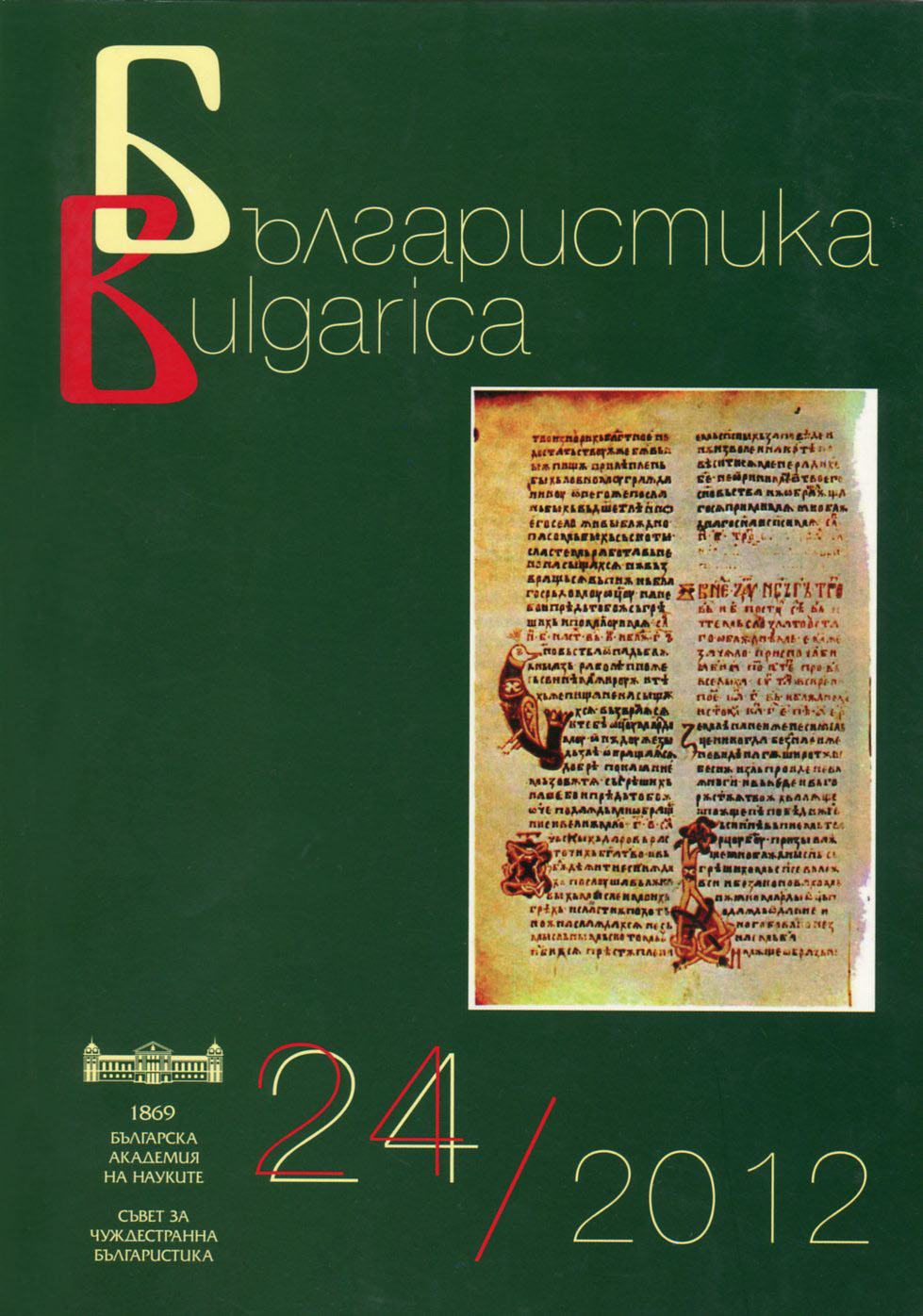
Научна периодика 2011–2012 г.
Content of the main Bulgarian scientific journals for the current year in linguistics, literature, history, folklore, ethnography, archaeology and art studies
More...We kindly inform you that, as long as the subject affiliation of our 300.000+ articles is in progress, you might get unsufficient or no results on your third level or second level search. In this case, please broaden your search criteria.

Content of the main Bulgarian scientific journals for the current year in linguistics, literature, history, folklore, ethnography, archaeology and art studies
More...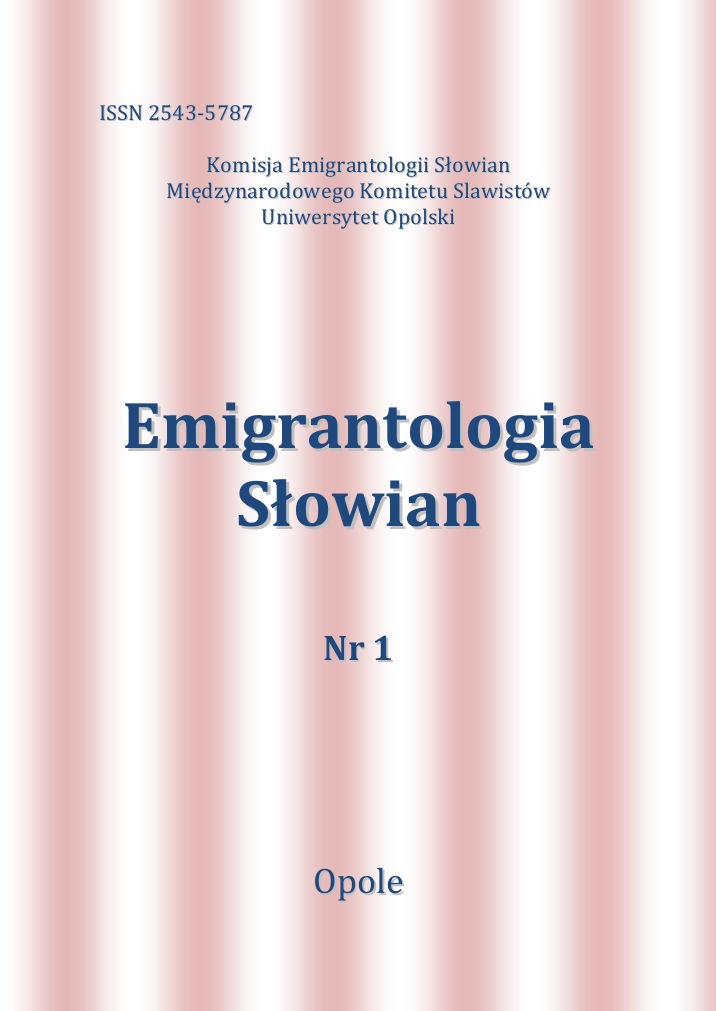
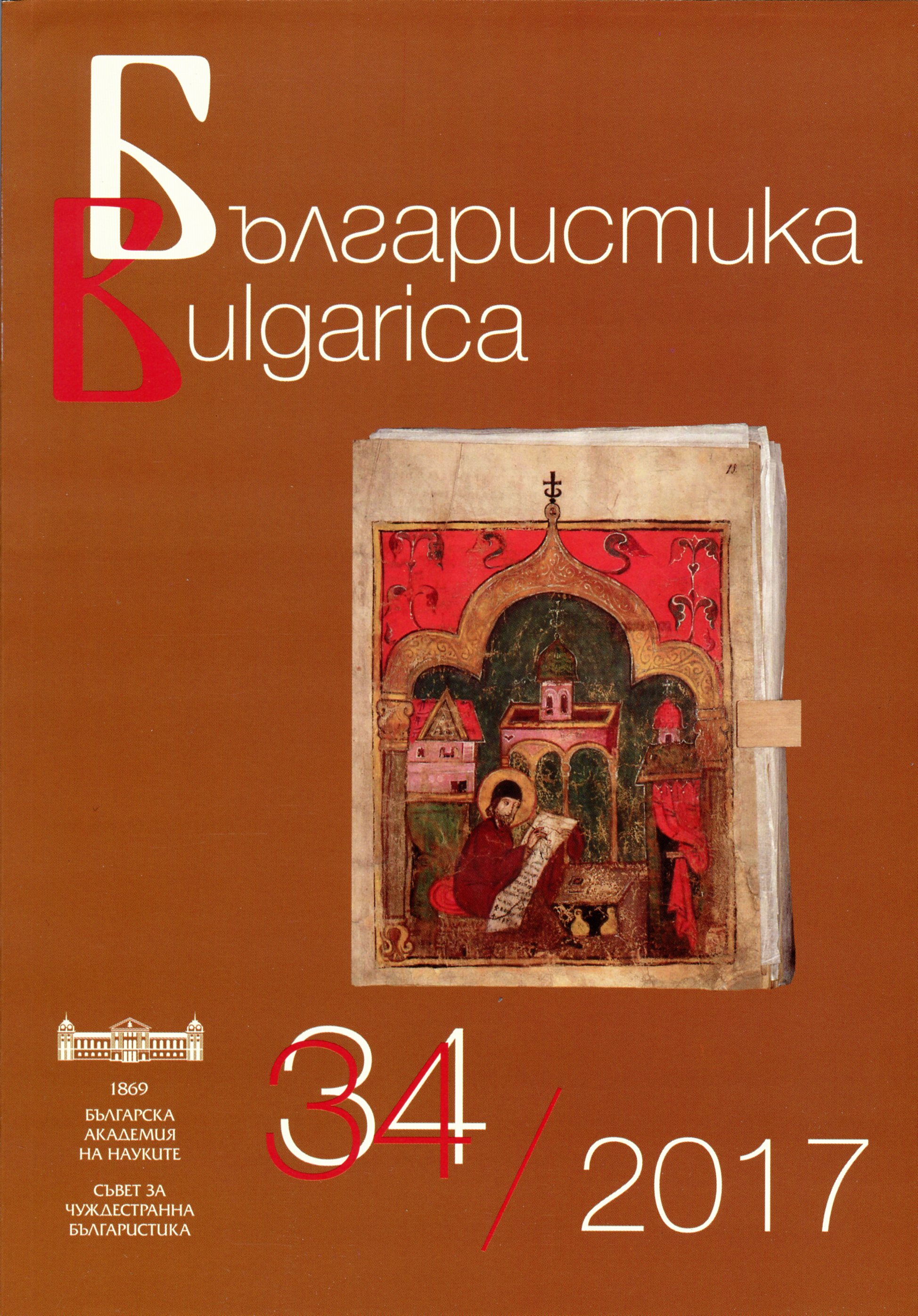
Selected bibliography in the field of Bulgarian Studies published in the current year
More...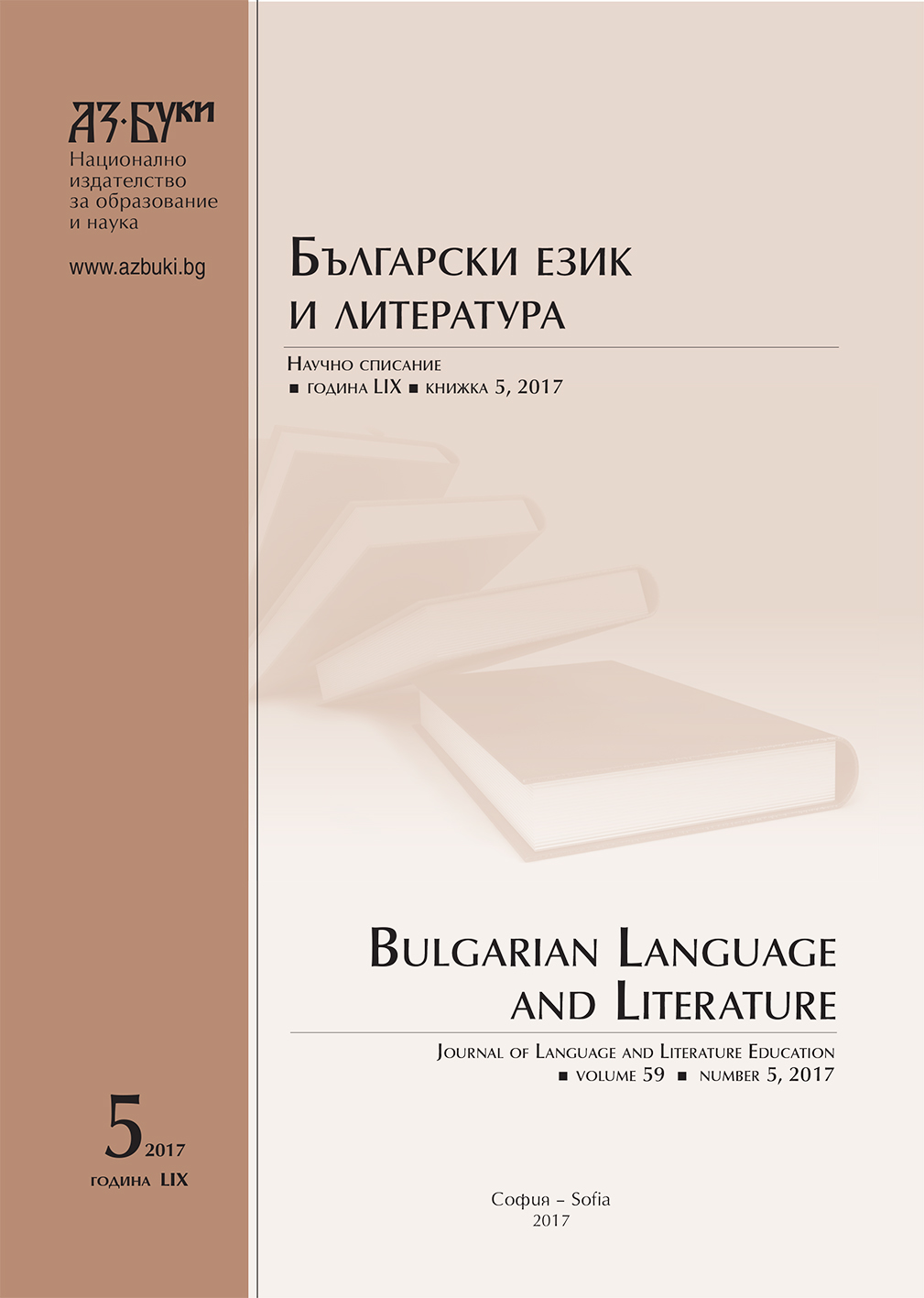
This article presents a possible model for teaching 9th grade Literature material related to the Bible and the Old Bulgarian literature by applying the knowledge that the students have acquired during the Information Technology classes. The demonstration of the student presentations about famous Bulgarian monasteries favors the formation of teamwork skills, the creative usage of the Internet resources and the improvement of the knowledge connected with the subjects studied in 9th grade.
More...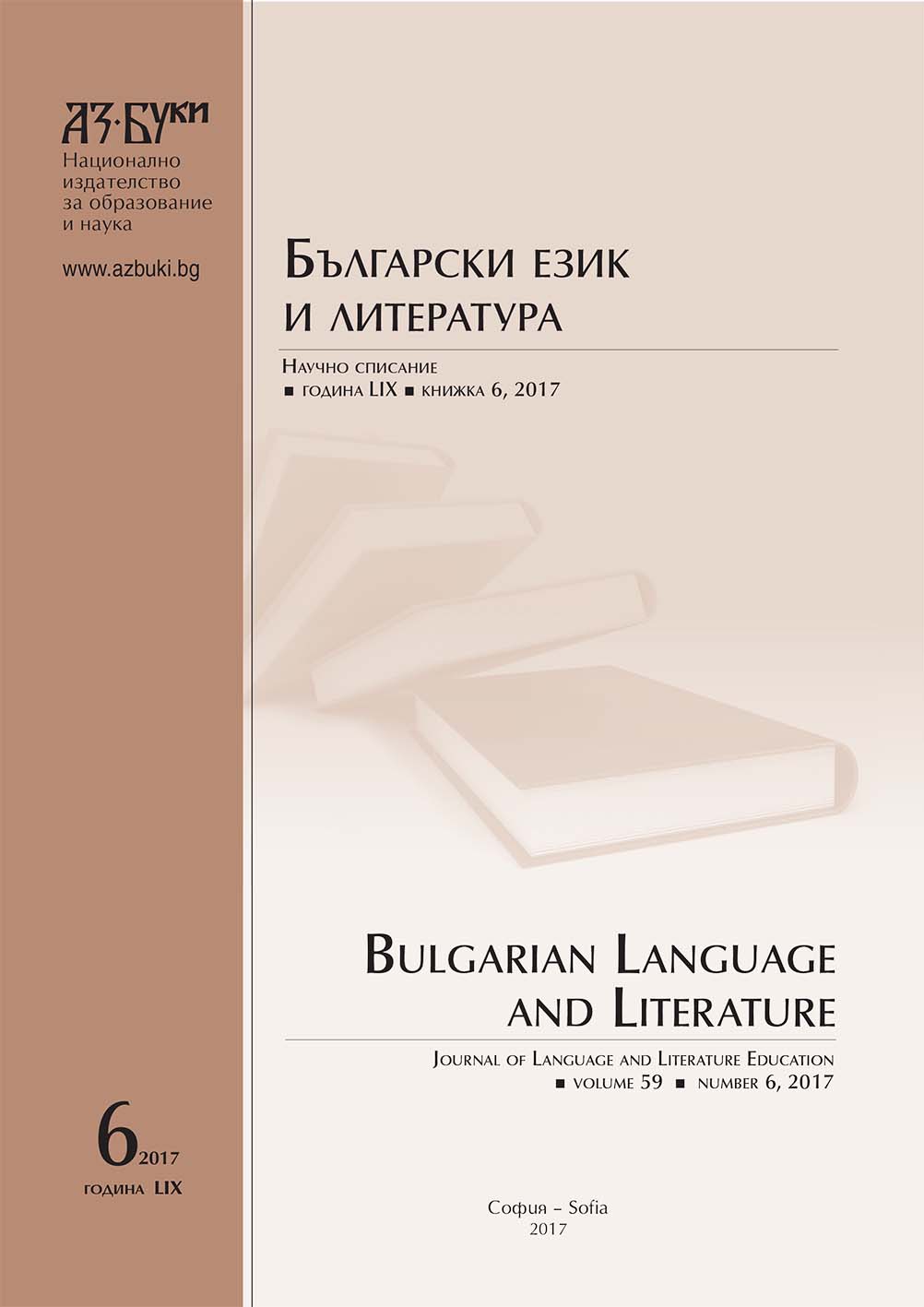
Writing is a main component in second language acquisition. Writing skills are basic and include creating texts, which are assessed acording to the following criteria: content, organization and cohesion, range, register, target language, accuracy of language. The writing task, which results are analysed in this article, is partially constrained by presenting foreign students with initial and final sentences. The students were instructed to write several sentences in between those two which, when taken all together, would form a good text.
More...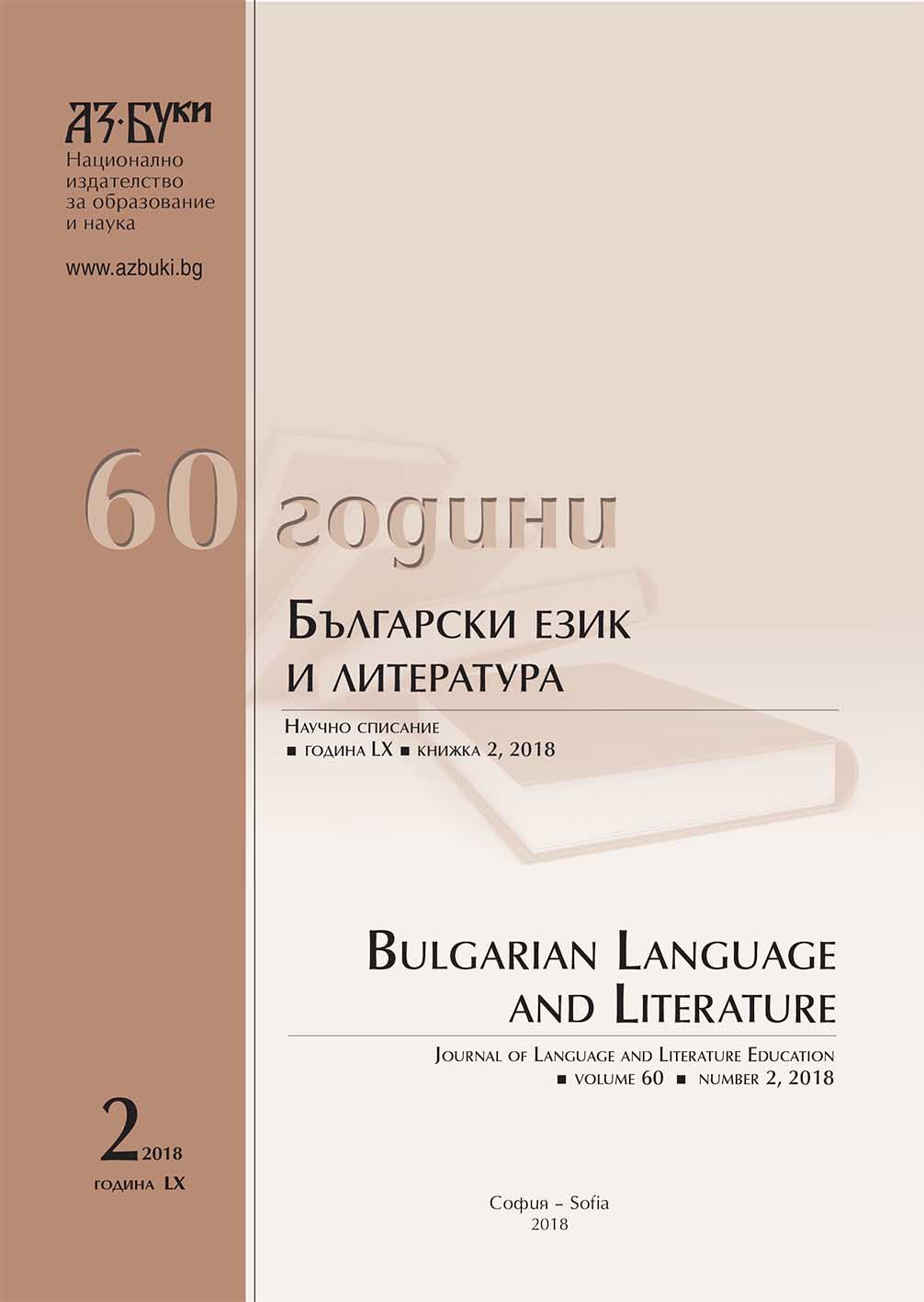
The article discusses the relationship between some peculiarities of the New Bulgarian literary language and the process of formation of the Bulgarian nation during the Renaissance. Characteristics such as piety to native language, movement to build a common and comprehensible for all literary language with modern norms, use of variant forms; a lack of a narrowly dialectic basis mark the pattern of forming of national literary language corresponds to such historical features as the lack of political autonomy, as well as the principles of egalitarianism and democratization, and a network model of social organization and functioning of public and cultural institutions.
More...
The Bulgarian dialectаl language today, due to changes of an extra-linguistic nature, is found both inside and outside the state borders of the Republic of Bulgaria in the three historical geographic areas: Moesia, Thrace and Macedonia. Due to the impossibility for Bulgaria to achieve its national reunification in the twentieth century and due to the imposed emigration of the population in the past after various wars, the Bulgarian language has a record number of attempts for writing-regional codifications - six, one of them being the Vardar-Macedonian one.
More...
The main theme of the text is assessment by constructed response items in Teaching Bulgarian Language based on Data of National Study and International Study. The problems connected with creating of standards settings in school education are discussed.
More...
The report presents the interactive approaches for the development of communicative competences by applying ICT and teamwork of training in Bulgarian language teaching in VIII grade. The proposed model is a lesson for the team create an email with the specific purpose and addressed.
More...
The new Bulgarian damascenes are important moment of the development of the literary Bulgarian language. The use of vernacular in the damascenes restores the relation between literary and spoken language and incorporates the living Bulgarian language enriched with literary vocabulary and means of expression. Thus, Bulgarian literature becomes part of the pan-European trend for democratization of written languages. The goal of this paper is to perform a comparative analysis of the 6th commandment from the enlightening speech on the Ten commandments from the Tihonravov damascene with part of the introduction from Slavonic Bulgarian History from Paisius of Hilendar. The analysis aims to track the diverse developments of the literary Bulgarian language. The study is based on comparing morphological and lexical particularities. The results indicate that the language of the Tihonravov damascene comes very close to the vernacular of the period and the present day vernacular, which confirms the hypothesis that the words used in the new Bulgarian damascenes are also the foundation for the new Bulgarian literary language.
More...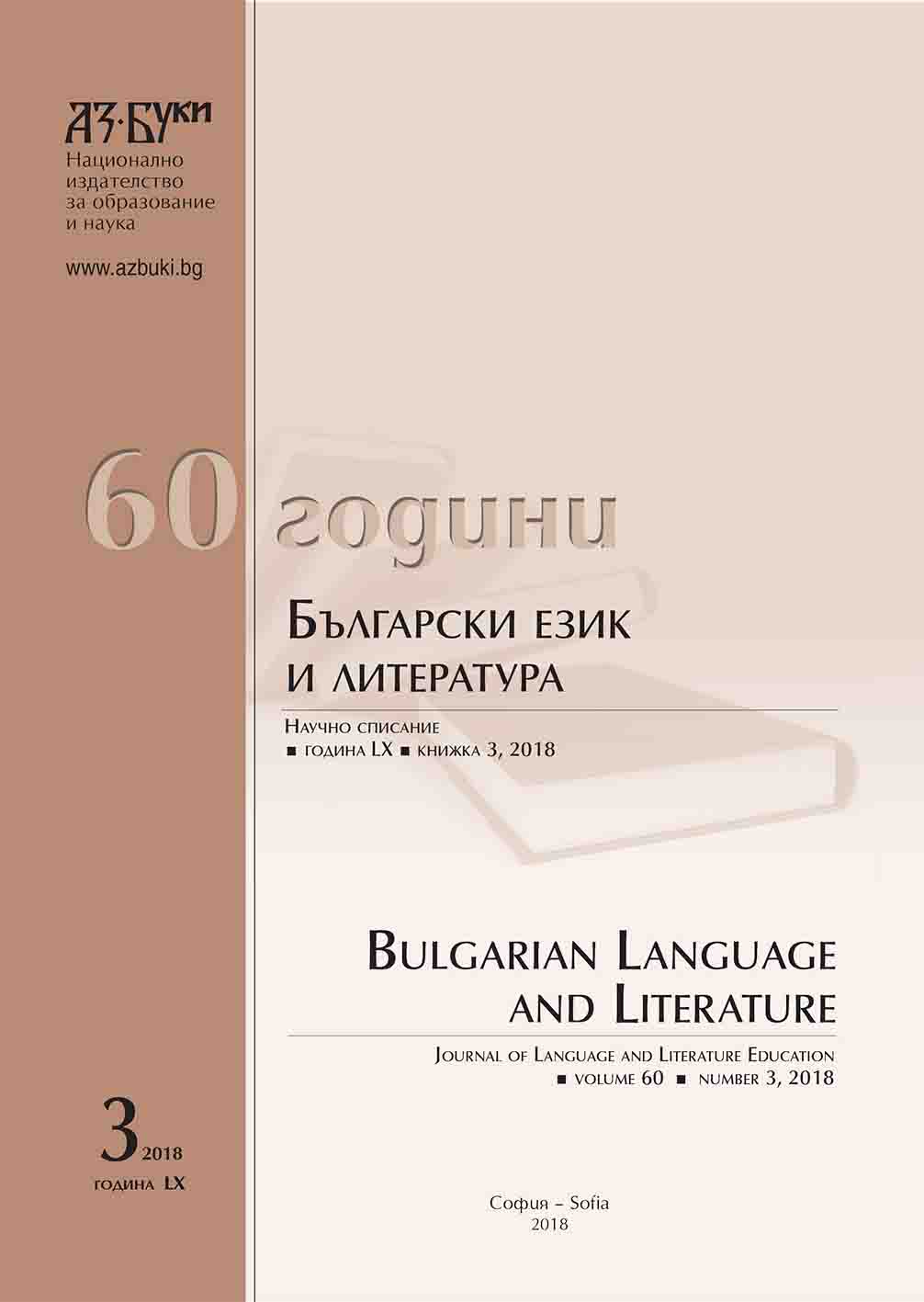
The article discusses issues related to one of the most significant aspects of the new curricula (since 2016) – the development of key competences as a primary educational objective. The concept of key competences, and in particular the key competency “communication in native language” (Bulgarian), has been considered in view of the opportunities that the curriculum content of the secondary schools offers for their achievement.
More...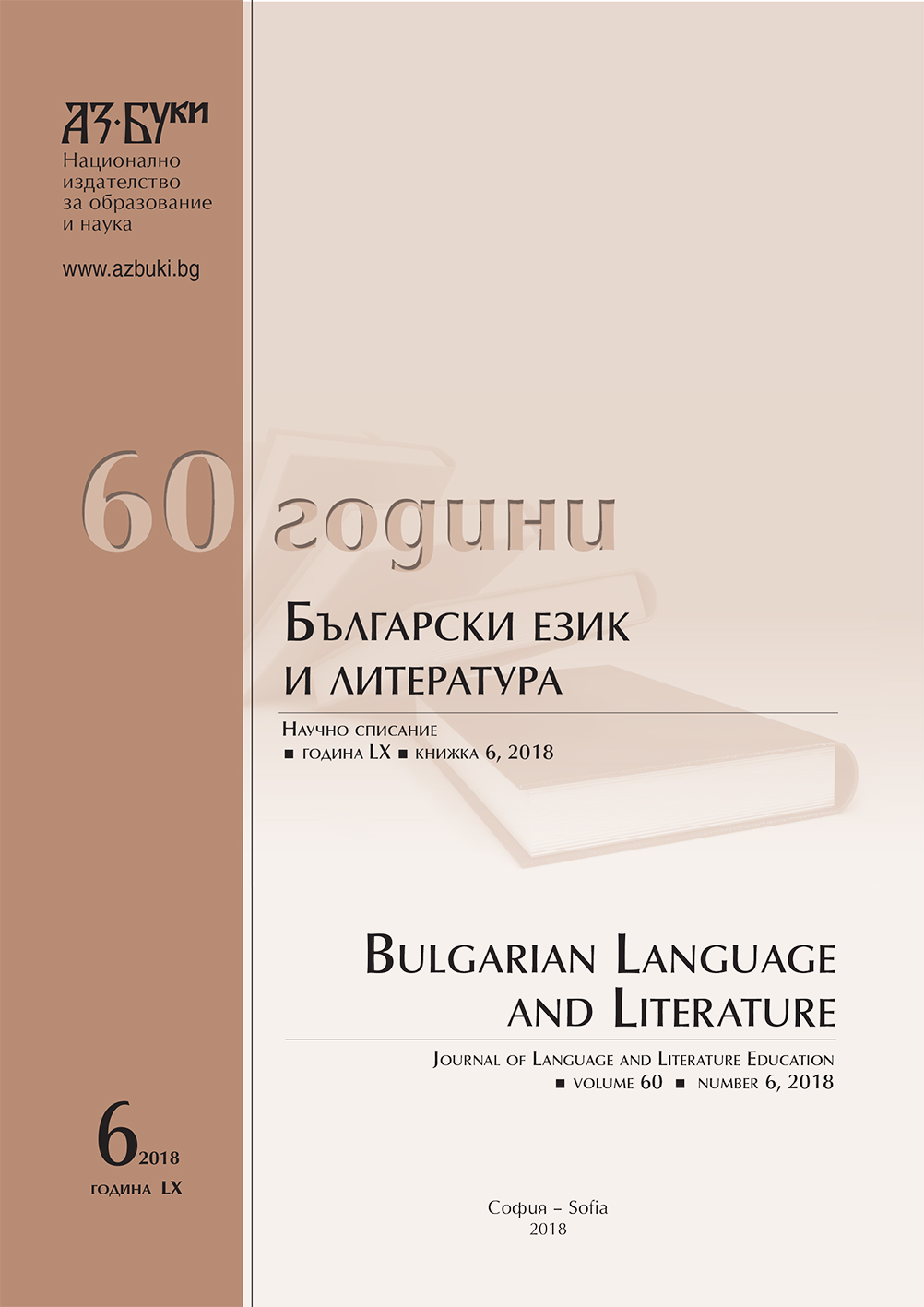
The article focuses on the relationship between the model in which the Bulgarian literary language is formed during the Revival period and the own - foreign opposition. It analyzes those cultural and historical prerequisites, which determine the specifics of the own – foreign opposition in the field of the literary language and explain the tolerance towards the foreign influences related to the orientation of our society towards European cultural models. The character of Bulgarian Purification is analyzed.
More...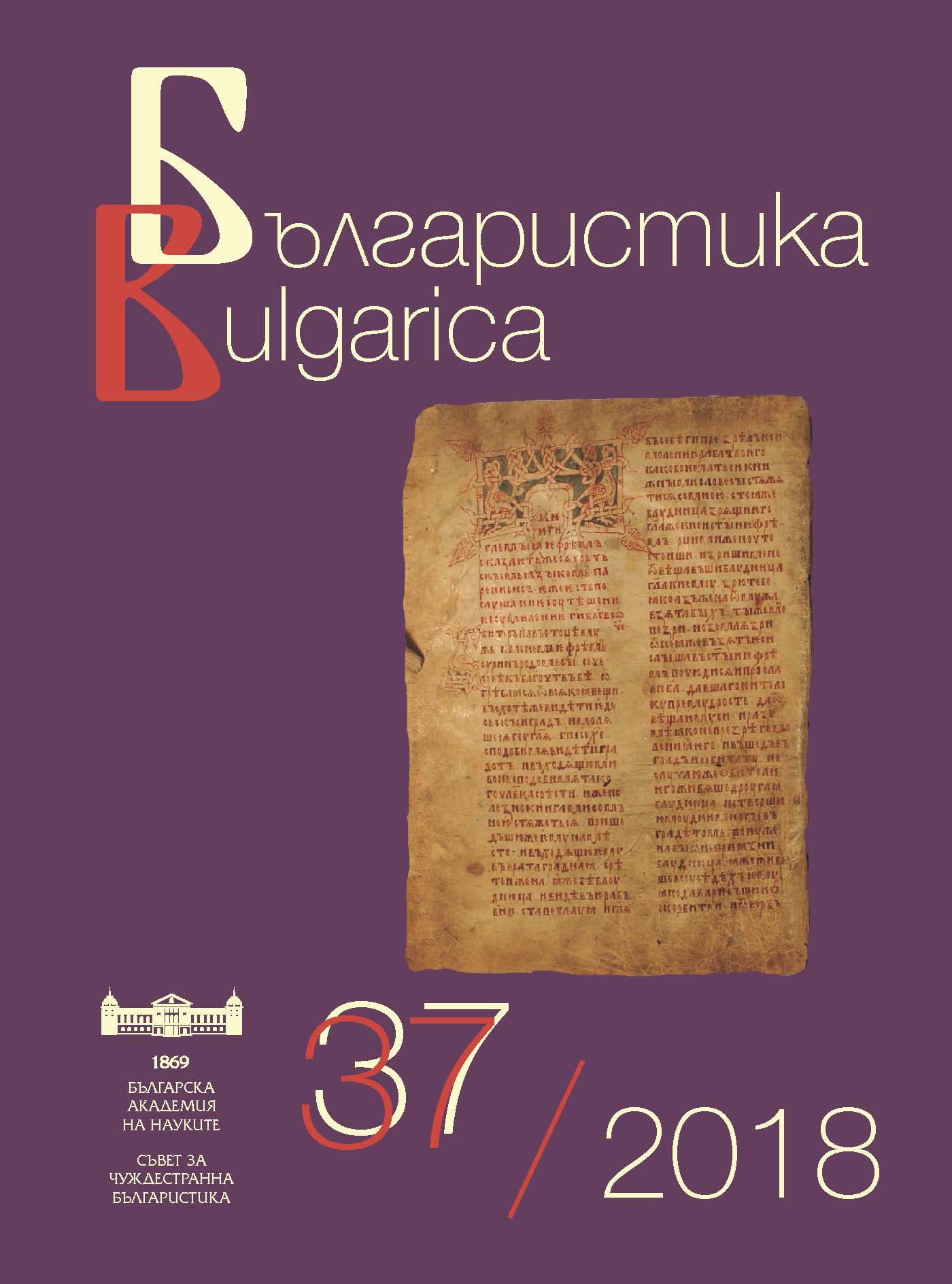
Selected bibliography in the field of Bulgarian Studies published in the current year.
More...
Defended Ph.D. theses in Bulgaria in the field of linguistics, literature, history, folklore, ethnography and art studies.
More...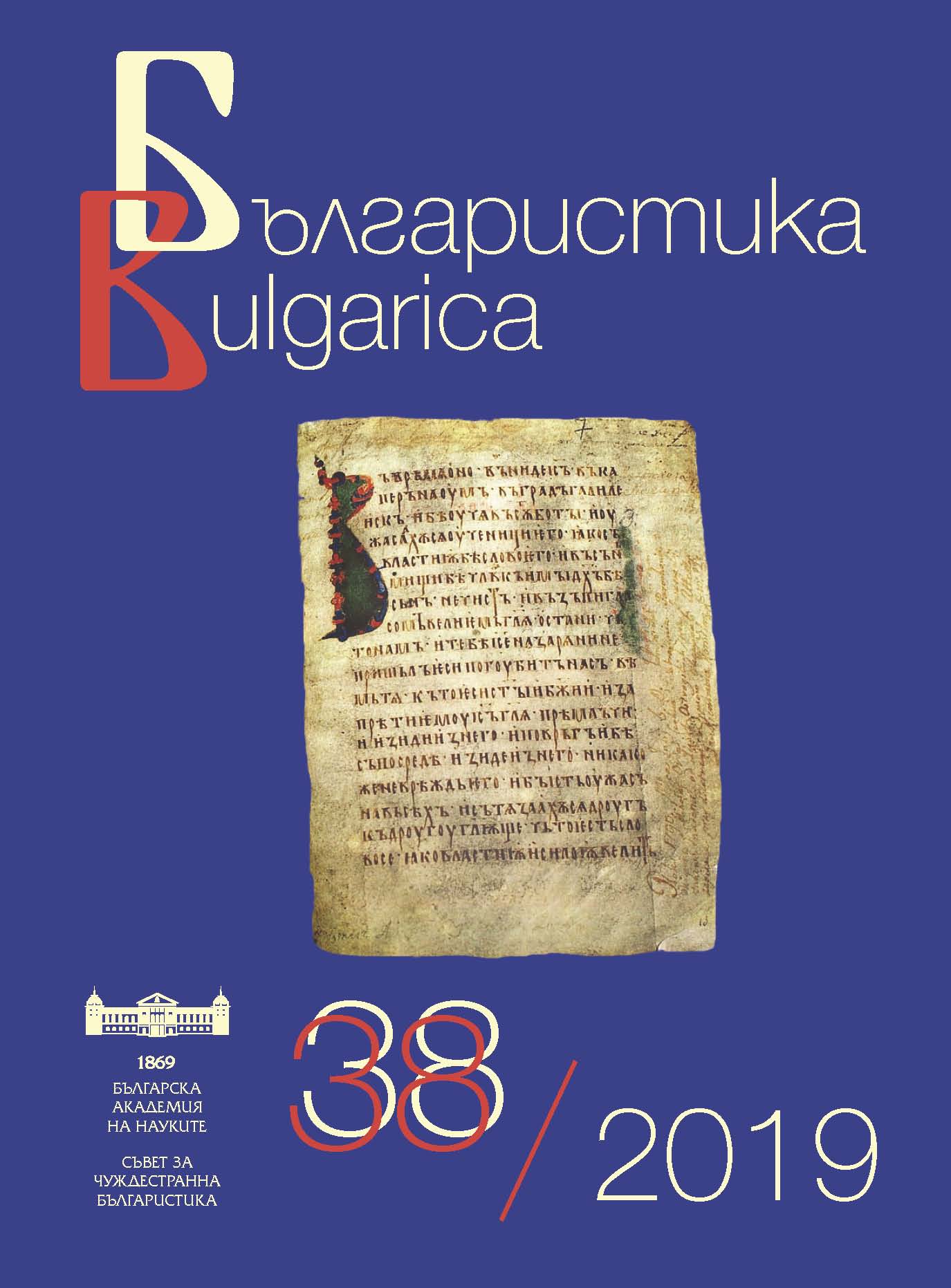
Selected bibliography in the field of Bulgarian Studies published in the current year
More...
Content of the main Bulgarian scientific journals for the current year in linguistics, literature, history, folklore, ethnography and art studies
More...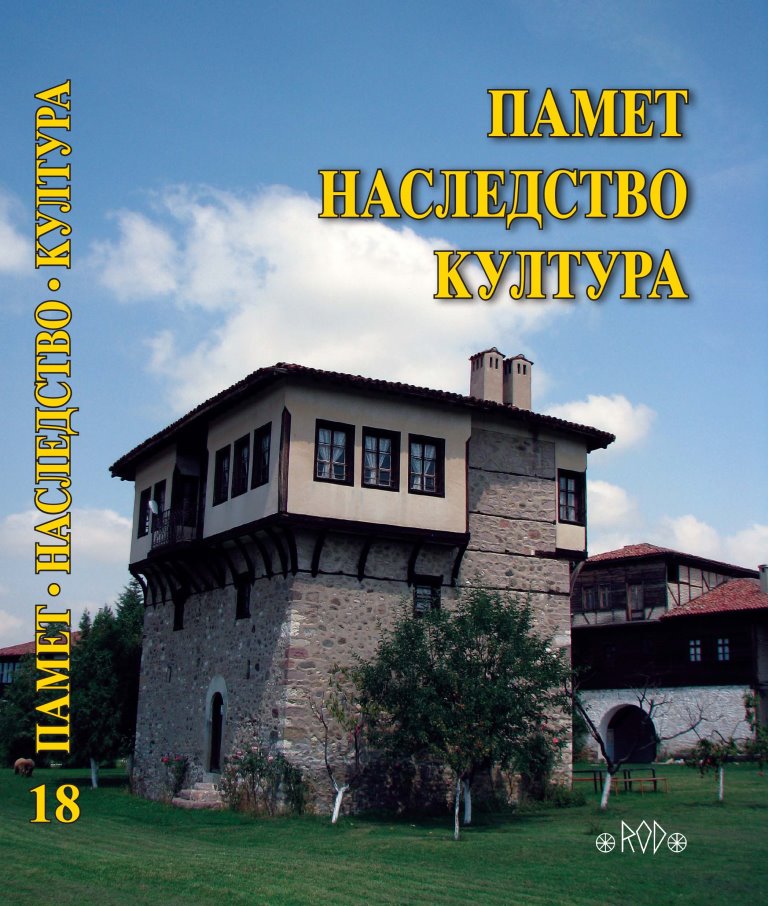
In the article are discussed anthroponyms of pilgrims from Dobrevtsi village, Teteven district, entered in the Etropole beadroll in 1648. For comparison of an earlier period are given names of people from the same village in the Ottoman registers of tax revenue from 1515 and 1584, allowing you to track certain features of the system names, ethnic, confessional and social composition of the population etc. Anthroponyms from the village are compared with those of the pilgrims from Etropole mentioned in the Etropole beadroll.
More...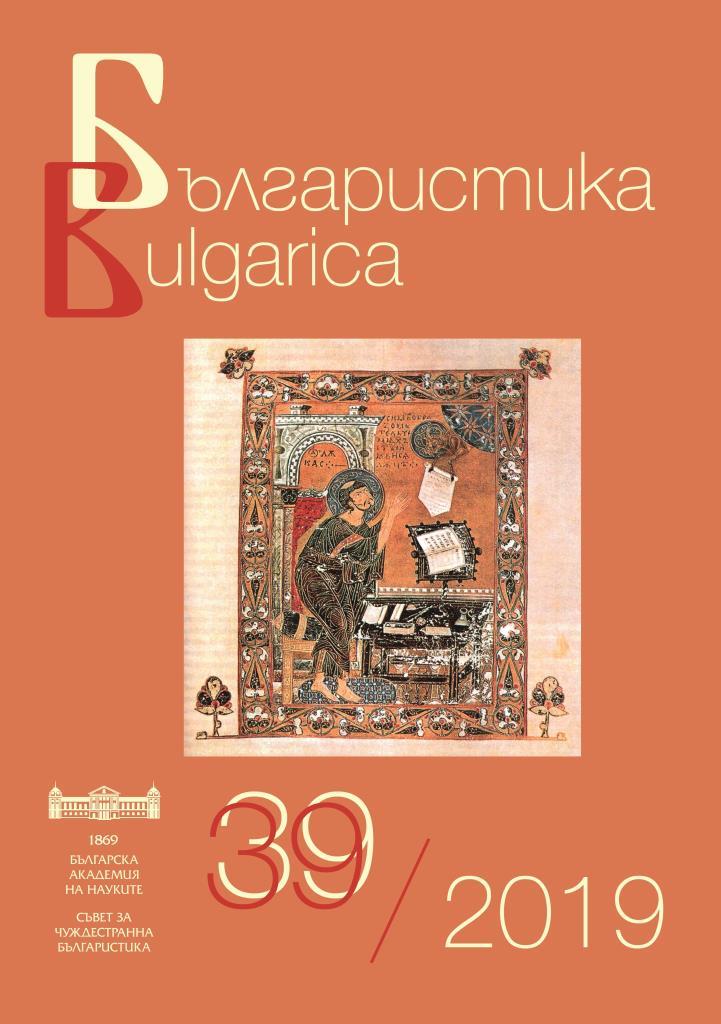
Selected bibliography in the field of Bulgarian Studies published in the current year.
More...
Content of the main Bulgarian scientific journals for the current year in linguistics, literature, history, folklore, ethnography, archaeology and art studies.
More...
Data about scientific events in the field of the humanities in Bulgaria in 2019
More...